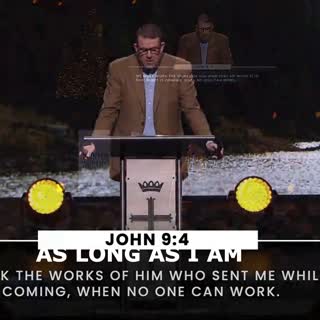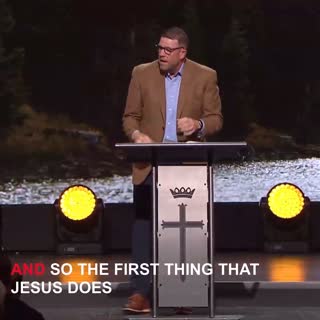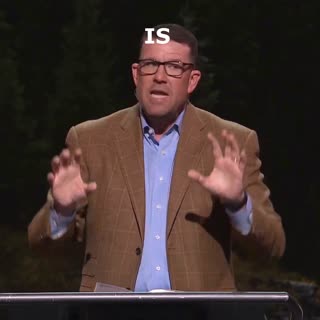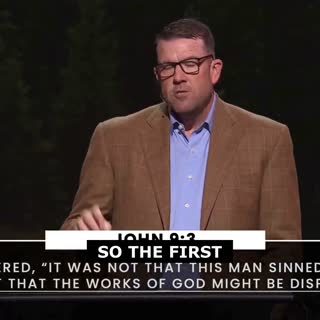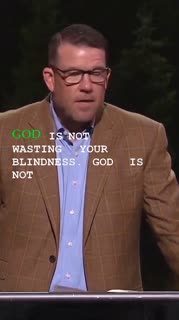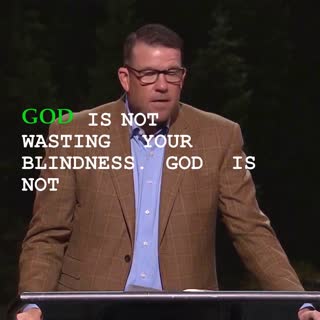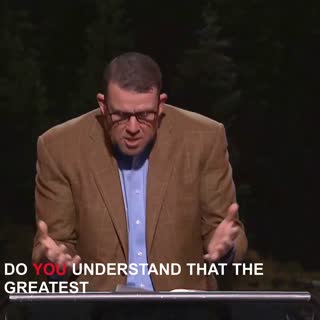Finding Purpose in Suffering: A Journey of Faith
Summary
In today's gathering, we explored the profound and often perplexing topic of suffering, drawing from John chapter 9. As we navigate the complexities of life, we all encounter suffering in various forms. It's a universal experience, yet each person's journey through pain is unique. We categorized suffering into three types: suffering due to personal choices, suffering caused by others' actions, and suffering that seems to have no direct cause, which we termed as category three suffering. This last type is particularly challenging to understand because it stems from living in a world broken by sin.
In John 9, we see Jesus addressing the disciples' questions about a man born blind. They sought to understand the cause of his suffering, reflecting a common human desire to make sense of pain. Jesus' response was twofold: first, He dispelled the notion that all suffering is a direct result of sin, and second, He revealed that suffering can serve a greater purpose. The man's blindness was not a punishment but an opportunity for God's works to be displayed.
This narrative teaches us that God does not waste our suffering. Instead, He works through it, redeeming our pain for His purposes. The healing of the blind man was not just a physical miracle but a spiritual awakening, leading him to recognize Jesus as the Son of God. This transformation underscores the idea that our deepest struggles can lead us to a closer relationship with God.
Reflecting on personal experiences, I shared how my family's journey with our daughters' health challenges has deepened our faith and reliance on God. Suffering, while difficult, can be a stewardship, drawing us nearer to God and shaping us into who He intends us to be. It is through these trials that we often find our greatest spiritual growth and understanding.
Key Takeaways:
1. Understanding Suffering's Complexity: Suffering is a universal experience, yet it manifests differently for each individual. While some suffering results from personal choices or others' actions, much of it is simply a consequence of living in a broken world. This complexity challenges us to seek deeper understanding and empathy for others' pain. [23:17]
2. God's Purpose in Pain: Jesus teaches that suffering is not always a direct result of sin but can be an opportunity for God's works to be displayed. Our pain is not wasted; God uses it to accomplish His purposes, often bringing about spiritual growth and transformation. [29:48]
3. Suffering as a Path to Spiritual Sight: The healing of the blind man in John 9 illustrates that physical suffering can lead to spiritual awakening. Through our struggles, we may gain a deeper understanding of God's presence and purpose in our lives, leading us to worship and trust Him more fully. [39:15]
4. Faith in the Midst of Hardship: Faith is the tension between acknowledging God's goodness and the reality of our suffering. It is through this tension that we draw closer to God, trusting that He is working in and through our pain for our ultimate good and His glory. [42:46]
5. Suffering as Stewardship: Our experiences of suffering can be seen as a stewardship, a responsibility to trust God and grow in our relationship with Him. Through our trials, we are shaped into the people God intends us to be, and our faith is strengthened as we rely on His grace and power. [49:53]
Youtube Chapters:
[00:00] - Welcome
[05:30] - Christmas Tree Lighting Invitation
[10:00] - Introduction to Suffering
[15:45] - Categories of Suffering
[23:17] - Understanding Suffering's Complexity
[29:48] - God's Purpose in Pain
[33:17] - Jesus' Response to Suffering
[36:35] - The Blind Man's Testimony
[39:15] - Spiritual Awakening Through Suffering
[42:46] - Faith in Hardship
[45:43] - Personal Testimony of Suffering
[49:53] - Suffering as Stewardship
[51:03] - Family's Journey and Faith
[58:01] - Invitation to Respond
[01:02:16] - Closing and Dismissal
Study Guide
Bible Study Discussion Guide
Bible Reading:
- John 9:1-41
Observation Questions:
1. What are the three categories of suffering mentioned in the sermon, and how are they defined? [23:17]
2. How does Jesus respond to the disciples' question about the cause of the man's blindness in John 9? [29:48]
3. What was the reaction of the Pharisees to the healing of the blind man, and how did the man respond to their questioning? [36:35]
4. How does the sermon describe the transformation of the blind man after his encounter with Jesus? [39:15]
Interpretation Questions:
1. How does the sermon explain the concept of "category three suffering," and why is it considered the most challenging to understand? [23:17]
2. In what ways does the sermon suggest that God uses suffering for a greater purpose, according to Jesus' response in John 9? [29:48]
3. How does the story of the blind man illustrate the idea of suffering leading to spiritual awakening and growth? [39:15]
4. What does the sermon imply about the relationship between faith and suffering, particularly in the context of personal testimonies shared? [49:53]
Application Questions:
1. Reflect on a time when you experienced suffering that seemed to have no direct cause. How did you navigate that experience, and what did you learn about God's presence in your life? [23:17]
2. How can you apply the understanding that suffering is not always a result of sin but can be an opportunity for God's works to be displayed in your current challenges? [29:48]
3. In what ways can you seek spiritual growth and transformation through your struggles, similar to the blind man's journey in John 9? [39:15]
4. How do you balance acknowledging the reality of your suffering with maintaining faith in God's goodness, as discussed in the sermon? [42:46]
5. Consider the idea of suffering as a stewardship. How can you view your current hardships as an opportunity to trust God and grow in your relationship with Him? [49:53]
6. Reflect on the personal testimony shared in the sermon about the pastor's family. How can you find encouragement and strength in your own experiences of suffering? [51:03]
7. Identify a specific area of your life where you feel God might be using suffering to draw you closer to Him. What steps can you take to embrace this process and deepen your faith? [49:53]
Devotional
Day 1: The Complexity of Suffering
Suffering is a universal experience, yet it manifests differently for each individual. It can arise from personal choices, the actions of others, or simply from living in a broken world. This complexity challenges us to seek deeper understanding and empathy for others' pain. In John 9, Jesus addresses the disciples' questions about a man born blind, dispelling the notion that all suffering is a direct result of sin. Instead, He reveals that suffering can serve a greater purpose. This narrative encourages us to approach suffering with humility and compassion, recognizing that each person's journey through pain is unique. [23:17]
"For I consider that the sufferings of this present time are not worth comparing with the glory that is to be revealed to us." (Romans 8:18, ESV)
Reflection: Think of someone in your life who is suffering. How can you offer them empathy and support today, acknowledging the complexity of their pain?
Day 2: God's Purpose in Pain
Jesus teaches that suffering is not always a direct result of sin but can be an opportunity for God's works to be displayed. Our pain is not wasted; God uses it to accomplish His purposes, often bringing about spiritual growth and transformation. In John 9, the man's blindness was not a punishment but an opportunity for God's works to be displayed. This perspective invites us to view our own suffering as a potential avenue for God's glory to be revealed in our lives. It challenges us to trust in God's sovereignty and His ability to redeem our pain for His purposes. [29:48]
"So that the tested genuineness of your faith—more precious than gold that perishes though it is tested by fire—may be found to result in praise and glory and honor at the revelation of Jesus Christ." (1 Peter 1:7, ESV)
Reflection: Consider a current or past struggle in your life. How might God be using this situation to display His works and grow your faith?
Day 3: Suffering as a Path to Spiritual Sight
The healing of the blind man in John 9 illustrates that physical suffering can lead to spiritual awakening. Through our struggles, we may gain a deeper understanding of God's presence and purpose in our lives, leading us to worship and trust Him more fully. The blind man's journey from physical blindness to spiritual sight underscores the transformative power of encountering Jesus in the midst of suffering. This narrative encourages us to seek spiritual insight and growth through our own trials, trusting that God is at work even when we cannot see it. [39:15]
"Open my eyes, that I may behold wondrous things out of your law." (Psalm 119:18, ESV)
Reflection: Reflect on a time when a difficult experience led to a deeper understanding of God. How can you seek spiritual insight in your current circumstances?
Day 4: Faith in the Midst of Hardship
Faith is the tension between acknowledging God's goodness and the reality of our suffering. It is through this tension that we draw closer to God, trusting that He is working in and through our pain for our ultimate good and His glory. The story of the blind man in John 9 demonstrates how faith can grow amidst hardship, as he comes to recognize Jesus as the Son of God. This narrative invites us to embrace the tension of faith, trusting in God's goodness even when our circumstances are challenging. [42:46]
"Count it all joy, my brothers, when you meet trials of various kinds, for you know that the testing of your faith produces steadfastness." (James 1:2-3, ESV)
Reflection: Identify an area of your life where you are struggling to trust God. How can you lean into faith and seek His presence in this situation today?
Day 5: Suffering as Stewardship
Our experiences of suffering can be seen as a stewardship, a responsibility to trust God and grow in our relationship with Him. Through our trials, we are shaped into the people God intends us to be, and our faith is strengthened as we rely on His grace and power. The narrative of John 9 encourages us to view suffering as an opportunity for spiritual growth and transformation, trusting that God is at work in our lives. This perspective invites us to steward our suffering well, seeking to grow in faith and reliance on God through our trials. [49:53]
"Not only that, but we rejoice in our sufferings, knowing that suffering produces endurance, and endurance produces character, and character produces hope." (Romans 5:3-4, ESV)
Reflection: How can you view your current challenges as an opportunity for spiritual growth? What steps can you take to steward your suffering well and rely on God's grace?
Quotes
"As long as I am in the world, I am the light of the world. So you'll remember Jesus gave two answers here. They're found in the same verse. The first answer comes at the beginning of verse 3. The second answer comes at the second half of verse 3. And in his first answer, Jesus explained, and we talked about this, that suffering is not simply understood. It's a complicated issue. Would we agree? Because while everybody suffers, the way you suffer might be different from the way I suffer. The things that you have had to endure are difficult from the things that I have had to endure. And yet we would acknowledge we have both experienced pain." [00:30:07] (39 seconds)
"And so the first thing that Jesus does is he dispels the common theological belief of that day that this man's birth defect of blindness must be either because of his inherent sin nature or because of some sinful action of his mom and dad. But Jesus says, no, there is some suffering that doesn't fit neatly into category one or category two." [00:30:58] (25 seconds)
"It is only existing because we live in a world that has been fractured by sin. Our world is broken. And there are some evidences, consequences of that brokenness that are going to lead to suffering that is just different. And so the first thing that Jesus says is, it's difficult to try to explain and fully understand. And so we understand suffering is complicated. Because again, while it is common, not everybody suffers the same. And therefore, it isn't always easily understood or explained." [00:31:42] (30 seconds)
"So the first answer Jesus gives is, listen, suffering is not always easily understood. It's a complicated issue. The second answer that Jesus gives is that suffering is never wasted with God. He's not wasting our hardship. Look at me. He's working in it." [00:34:02] (19 seconds)
"God is not wasting your blindness. God is not wasting your crisis. God is not wasting your diagnosis. He's actually working right in the middle of it. And then the most amazing thing happens when Jesus has his follow-up conversation with the man who can now see." [00:39:15] (20 seconds)
"Do you understand that the greatest miracle that takes place in this story is not the man's physical sight being restored, but rather that he is given spiritual sight for the very first time. Like it was through his physical blindness that Jesus brought an eternal spiritual sight." [00:40:34] (22 seconds)
"And faith is the space that exists. Between those two things, and that he would entrust us with these little girls and all the difficulty that their little lives entail has only served to draw us closer into a personal relationship and a greater affection for him. And I would not be the man I am." [00:50:08] (24 seconds)
"What I see now is that suffering is essentially a stewardship, and that faith is the tension that is found between the honesty of God is always good, and yes, this is pretty bad." [00:49:53] (15 seconds)

